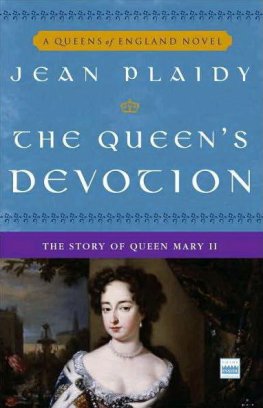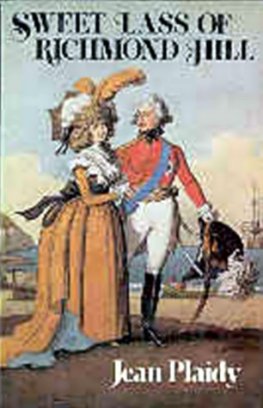Viktoriya Holt - A Health Unto His Majesty
Here you can read online Viktoriya Holt - A Health Unto His Majesty full text of the book (entire story) in english for free. Download pdf and epub, get meaning, cover and reviews about this ebook. genre: Romance novel. Description of the work, (preface) as well as reviews are available. Best literature library LitArk.com created for fans of good reading and offers a wide selection of genres:
Romance novel
Science fiction
Adventure
Detective
Science
History
Home and family
Prose
Art
Politics
Computer
Non-fiction
Religion
Business
Children
Humor
Choose a favorite category and find really read worthwhile books. Enjoy immersion in the world of imagination, feel the emotions of the characters or learn something new for yourself, make an fascinating discovery.

- Book:A Health Unto His Majesty
- Author:
- Genre:
- Rating:3 / 5
- Favourites:Add to favourites
- Your mark:
- 60
- 1
- 2
- 3
- 4
- 5
A Health Unto His Majesty: summary, description and annotation
We offer to read an annotation, description, summary or preface (depends on what the author of the book "A Health Unto His Majesty" wrote himself). If you haven't found the necessary information about the book — write in the comments, we will try to find it.
A Health Unto His Majesty — read online for free the complete book (whole text) full work
Below is the text of the book, divided by pages. System saving the place of the last page read, allows you to conveniently read the book "A Health Unto His Majesty" online for free, without having to search again every time where you left off. Put a bookmark, and you can go to the page where you finished reading at any time.
Font size:
Interval:
Bookmark:
Jean Plaidy
A Health Unto His Majesty
ONE
It was the month of Maythe gayest and most glorious month, the people assured themselves, that England had ever known. This was the 29th, a day of great significance.
That morning, it seemed that the sun rose with more than its usual brilliance.
A good omen! people called to one another from the windows of houses, the overhanging gables of which almost met over the cobbled streets. Its going to be a fine day.
In the country, as soon as the dawn showed in the sky, people were gathering on the village greens; there would be many to line the roads so that they should miss nothing when the time came.
Listen! one said to another. Even the birds are mad with joy. Have you ever heard a blackbird or chaffinch sing like that before? They know the good times are back.
Others declared that the cherry trees had never borne such great masses of blossom in previous years. The flowers seemed more fragrant that spring. Children gathered buttercups and bluebells, celandines and ladys-smocks to strew along the road; they wore chains of daisies as necklaces and chaplets as they danced to the merry tunes of the fiddlers.
Now the bells were ringing from every tower and steeple between Rochester and London.
This was the happy month of May when the Black Boy had come home to his people.
He rode in the midst of the cavalcadetall, slim and elegant, his swarthy face prematurely lined, his dark eyes smiling, eager, alert, yet holding a hint of cynicism in their depth. He looked older than his years; he was thirty and this was not only the day of his entry into his capital, it was also his birthday. A meet and fitting day, all agreed, for his return.
With him came 20,000 horse and foot, swords held high, shouting to express their hilarious joy as they marched along. The cavalcade had become swollen with every mile, for there had been a welcome for His Majesty at every point: Morris dancers had wished to show him by the abandoned joy of their performance that they rejoiced in his return, which was a signal for the overthrow of solemnity; fiddlers had played the merriest jigs they knew till the sweat ran down their faces; even the dignified mayors in their robes of office were almost indecorously gay. Men and women of all conditions had come to add their loyal shouts to the general clamor.
At last they came into his capital, where the bells were making a merry peel and the streets were hung with tapestry, and the conduits flowing with wine instead of water. Citizens wept and embraced each other. The drab days are over, they cried again and again. The King is restored to his own.
There would be merrymaking again; there would be pageants and ceremonies. On May Days the milkmaids would dance again in the streets, their pails flower-decked, while a fiddler led them along the Strand; the pleasure gardens would be thrown open; the theaters would flourish. Bartholomew and Southwark Fairs would be enjoyed once more; cock-fighting and bull-baiting would take place openly again; laughter would be considered a virtue instead of a sin; and when Christmas came it would be celebrated with the old gusto. The great days were here again for His Majesty King Charles II had come home.
What a brilliant sight this was, with the Lord Mayor and aldermen and members of City Companies in their various liveries and golden chains; colored banners were held high; lines of brilliant tapestries were strung across the streets, while trumpet, fife and drum all sought to rival each other.
So great was the company that it took seven hours to pass any one spot. There had never been such pageantry in the City of London; and the citizens promised themselves that the revelry should continue for days to come. No one should be allowed to forget for a moment that the King had come home. It was eleven years since his father had been cruelly murdered; and for more years than that this dark young man had been a wandering exile on the continent of Europe. It was only fitting that he should know a right royal welcome was his.
He rode bareheaded, bowing this way and that, a faint smile about his mouth. He had remarked that it must surely have been his own fault that he had not returned before, as he had met no one, since he had stepped on English soil, who did not protest most fervently that he had always wished for the restoration of his King.
Now there were faint lines of weariness about his mouth. He had long dreamed of this day; he would never have believed that he could have come to it in this manner and that his restoration could have been brought about without the shedding of one drop of bloodand by that very army which had sent his father to the scaffold and rebelled against himself. This was to be compared with that miraculous escape after Worcester; it was the second miracle in his life.
But he was wearyweary, yet content.
Ods Fish! he murmured. I have learned to live on easy terms with Exile and Poverty, but Popularity is such a stranger to me that I am uneasy in his presence. Yet I trust ere long that he and I shall become boon companions.
His eyes strayed again and again to the women, who waved flowers from the roadside as he passed or called a loyal welcome from their windows. Then the somber eyes would lighten at the sight of a pretty face, and the smile he gave would be very charming, the regal bowing of the head most elegant.
The people looked at him with tears in their eyes. A young Kinga King who, during his thirty years, had suffered hardship and frustration, which must have made him sick at heart. Small wonder that rumors had reached England of his profligate habits; but if he was overfond of the ladies the ladies would readily forgive him that, and the men would not hold it against him. He was such a romantic figure: a King returned to his country after years of exile. Charles Stuart on his thirtieth birthday, on entering his capital city, seemed to all beholders a King worthy to be loved.
The people grew hoarse with their shouting. Again and again the procession was delayed that yet another expression of loyal homage might be laid before the King, and it was seven oclock before he came to his Palace of Whitehall.
Now the lights were springing up all over the city. Bonfires were raised in every open space, and lighted candles showed in all the windows.
Let us welcome the King, shouted a thousand voices. Let us cry A Health Unto His Majesty.
The City was brilliant with thousands of candles which shone alike from the windows of great houses and the humblest dwellings.
In every window there must be candles to welcome His Majesty, for gangs roamed the streets ready to smash any window which was dark.
Everyone must join in the welcome, for the Merry Monarch had returned to make England merry.
In the Palace of Whitehall there was one who, with an impatience that she could not contain, waited to be presented to the King.
This was a tall young woman of nineteen, strikingly beautiful with rich, ripe coloring, bold flashing eyes that were almost startlingly blue; her rippling dark auburn hair was thick and vital; her features firm but beautifully molded. There was in her evidence of a fierce passion, which might have alarmed, but fascinated. Almost every man with whom she had come into contact had discovered her to be irresistible. Her rages came swiftly, and when they were upon her there was no knowing what turn they would take; she was beautiful and could be fierce as a tigressan Amazon of incomparable beauty which was of a deep sensual kind. Barbara Villiersnow Barbara Palmerwas the most desirable young woman in London.
Now she fumed as she paced up and down the apartment in which she waited for audience with the King.
Her maids hovered some little distance from her. They were afraid to come too near, yet afraid to come too far from her. If they offended her, Barbara did not hesitate personally to apply corporal punishment. She would pick up the nearest article and fling it at the offender; and her aim was sure; all her life she had been throwing things at those who offended her.
Font size:
Interval:
Bookmark:
Similar books «A Health Unto His Majesty»
Look at similar books to A Health Unto His Majesty. We have selected literature similar in name and meaning in the hope of providing readers with more options to find new, interesting, not yet read works.
Discussion, reviews of the book A Health Unto His Majesty and just readers' own opinions. Leave your comments, write what you think about the work, its meaning or the main characters. Specify what exactly you liked and what you didn't like, and why you think so.


